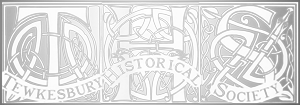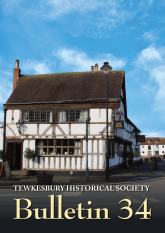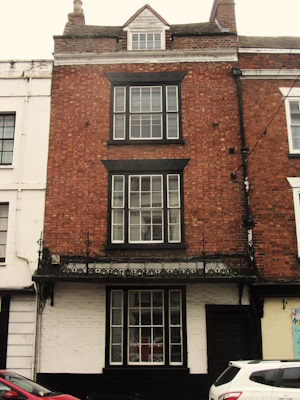18 Church Street, The Chequers Inn
In 1832, William Bubb wrote his will. He left his house, at the sign of the King’s Arms, occupied by Thomas Buckley, to his wife. A later document identifies this building, and plot extending to the Swilgate, as 18, Church Street. At some point, its name changed to the Three Legs, but in about 1808 the building, including much of the adjoining Bubb’s Alley, was demolished and the present one erected by William Gardner, who called it the Chequers Inn. It remained an inn until 1869, when its last landlord, William Dossett, sold it.
William Gardner quickly established a role for the inn as a venue for agricultural and property auctions. It was also the place where meetings of the Provident Society, a pension fund, were held. William Gardner died in 1828 and the Inn was sold. The next landlord, Charles Creese, stayed for about ten years. Henry White, His successor, was an interesting character. Born in Chipping Sodbury, he was trading as a hosier in Tewkesbury before taking the Chequers in 1841. He had some very esoteric skills. He was a champion quoits player and so proficient at shooting pennies tossed into the air that he was claimed to be the best in the kingdom. He set about making his tavern a venue for musical concerts and for banquets. He founded the ‘Ancient Abbey’ lodge of the Independent Order of Oddfellows (the White Rose lodge met in the Hop Pole). In 1842, seventy Oddfellows sat down to dine, so facilities must have been substantial. He was also High Warden of the Cordwainer’s Guild. In 1852, the much more prestigious Hop Pole became available, and Henry White moved there.
Henry Groves, the next landlord, continued to offer facilities for middle class clubs and societies. The Conservative Club started to meet there. Indeed, his ‘Housewarming Dinner’ was presided over by William Dowdeswell, MP. More ‘artisan’ interests began to creep in. A dinner for sixty employees of Hancock and Jeynes, working on the new Severn Lock in 1856, refreshments after cricket matches on the Ham and dinners for the Rifle Corps.
In 1858, Mr Groves moved to the Black Bear, and trading at the Chequers had clearly become difficult. A ‘free and easy’ musical evening was advertised on Tuesdays. There was a change in political direction with meetings of the Liberal Reform Club. Trade must have been slow. There were four landlords in ten years and in 1869 it was put up for sale.
The notice of sale describes a very substantial premises, with a parlour. tap room, club room and sitting room over the ground and first floors. There were stables with an entrance from the Swilgate Road. It was purchased by William Morse and became a butcher’s shop for many years, most of them trading with the Bloxham name.
The butchers seemed to cause more problems than the inn, especially to the now retired Alderman James Blount Lewis, who lived next door. Despite his strong protestations a licence was granted to erect a slaughterhouse at the back. He also wrote to the Council to complain that the ornamental iron verandah (sic) which Mr Morse had erected over the front door and window contravened the bye-laws. The council disagreed, and it remains a feature of the property.
There is nothing about the building today which hints at this history, or that it was constructed as an Inn so many years ago.



Comments